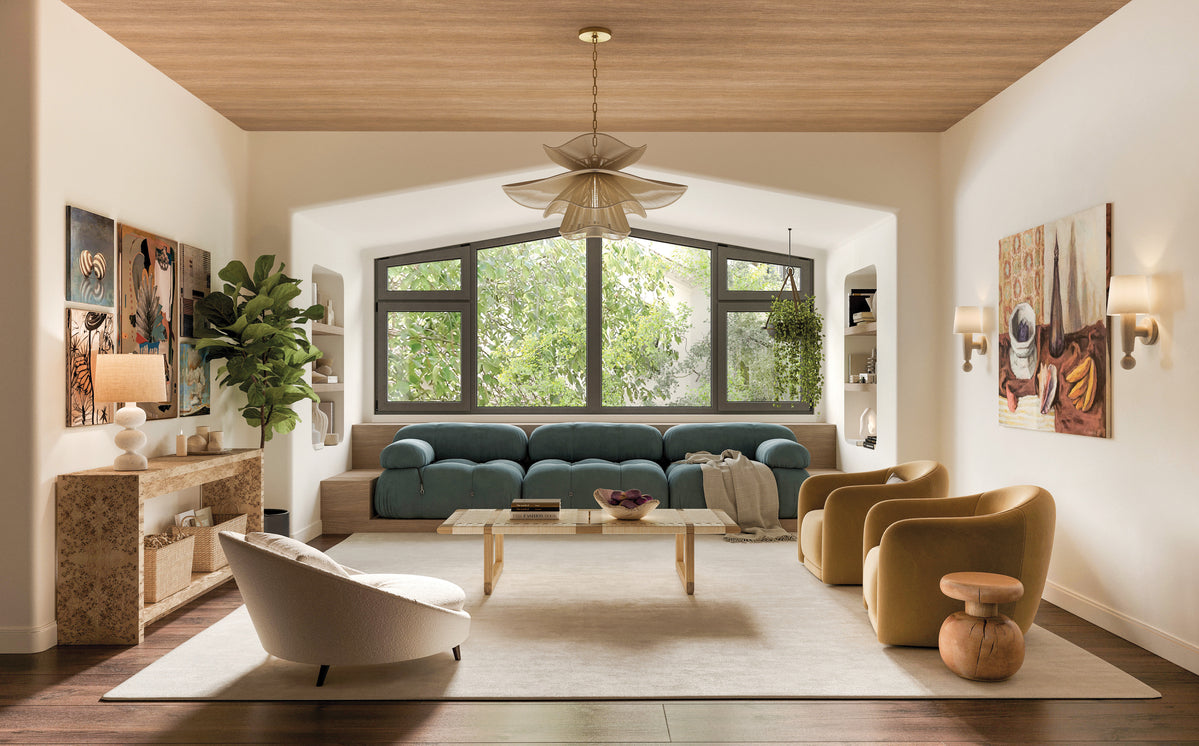Kitchen Lighting
Pendants

Pendants
When hanging island pendants, leave about 30–32" from the island countertop to the bottom of your fixture, and space each pendant about 30" apart.
Linear

Linear
For linear island lights, go with a fixture with a length that does not exceed 2/3 of the island. For a very long island, consider two linear lights if your electrical situation allows it.
Bathroom Lighting
Sconces

Sconces
Side mounted sconces should be about 28" apart. If your mirror is centered above the sink, mount fixtures just a few inches to the left and right of the mirror—as close to your face as possible. There should also be about 60-65" of space between the floor and the midpoint of the sconce backplate.
Bath Bars

Bath Bars
Your bath bar light should ideally be 75% the width of your mirror to provide balanced and proportional lighting. For optimal illumination and comfortable use, mount the fixture approximately 75-80" above the floor. This height helps reduce shadows on your face while keeping the light within practical reach.
Bedroom Lighting
Sconces

Plug-In Wall Sconces & Wall Sconces
When hanging plug-in sconces, leave about 55-60" from floor to top of your fixture, and space each plug-in sconce on each side of your bed.
Bedside Lamps

Bedside Lamps
Table lamps should be placed so the bottom of the shade sits about 42" off the floor. Always consider the lamp’s size in proportion to the piece of furniture it will live on.
Bedside Pendants

Bedside Pendants
Hang pendants so that the shade is about even with the side of your head or slightly higher from an upright seated position. Pendants used to replace portable lamps should be hung approximately 42" above the floor. For bedside sconces, between 55-60" of space from floor to top of sconce is ideal. For sconces with a switch or an adjustable arm, keep within arm's reach from a sitting position so you can easily turn it on and off.
Living Room Lighting
Chandeliers

Chandeliers
To calculate the size of your chandelier, multiply ceiling height by 2.5–3 to get suggested height for fixture. An 8’ ceiling calls for a chandelier height of 20–24". For diameter, add the room’s dimensions and convert sum to inches. A 12' x 12' room indicates a chandelier with a 24" diameter would work.
Picture Lights

Picture Lights
When used for art, tilt picture lights at a 30° tilt. To pick the right size light, measure the width of the frame, then select a fixture the width of which is about half that, e.g., if 8–14” wide, use a 4.5” light. If more than 30” wide, use a 30” light.
Dining Room Lighting
Chandeliers

Chandeliers
Keep 36" between the table and the chandelier's lowest-hanging point. For round tables, compare the diameters of the table and the fixture, aiming to keep the fixture 12-18" back from the table's edge. For a rectangular table, the ideal width is 6" less than all edges of the table.
Entryway Lighting
Wall Sconces

Wall Sconces
For entryways, mount wall sconces 60-65" from the floor. If your ceilings are very tall, place them higher to keep the lighting balanced and welcoming.
Pendants

Pendants
Finding the perfect entryway fixture is all about scale and placement. For pendants, keep the bottom of the fixture at least 84" from the floor for comfortable headroom. For chandeliers in open spaces, add your room’s length and width in feet to get the ideal diameter in inches. For example, a 7' x 10' room calls for a 17" chandelier.


